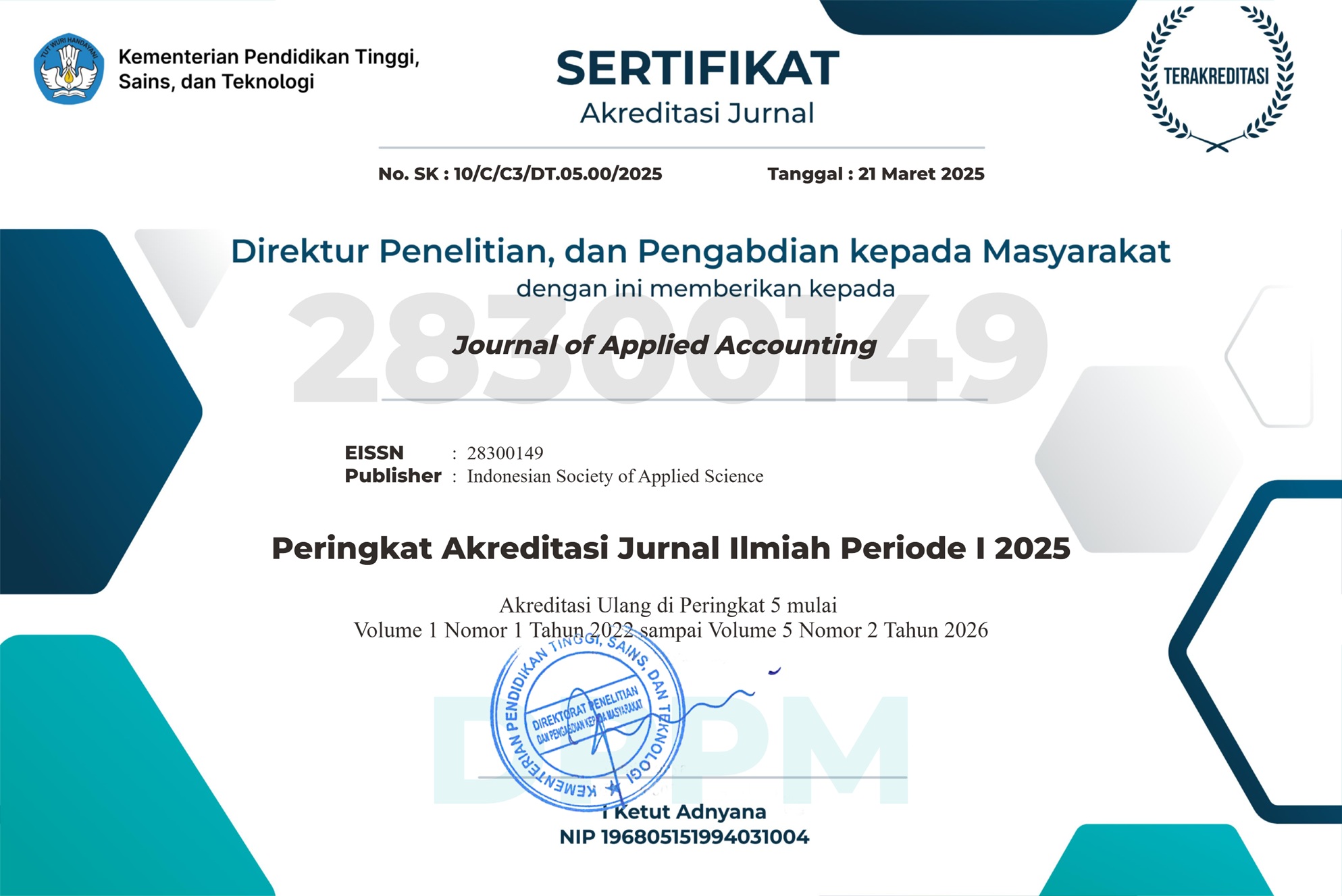Analisis Kinerja Keuangan Laporan Realisasi Pendapatan dan Belanja Daerah Kota Tasikmalaya Tahun 2020-2022
DOI:
https://doi.org/10.52158/jaa.v3i1.846Keywords:
Kinerja keuanganAbstract
Although Tasikmalaya City’s revenue has increased in recent years, this study shows that the city government is still dependent on support from the central government. Nonetheless, the evaluation shows that the local financial management of Tasikmalaya City is working well and efficiently, although there are some problems with the management of routine expenditures that need to be improved. The results suggest that the Tasikmalaya municipal government should improve the management of routine expenditure to be more in line with the regional revenue and expenditure budget (APBD) and to optimize the use of capital to improve the effectiveness and efficiency of government operations. This could improve local financial independence and reduce their dependence on the central government.
This research is quantitative and uses data from the annual report on the realization of the Tasikmalaya city regional revenue and expenditure budget from 2020 to 2022. The analysis was conducted using ratio analysis techniques to evaluate the efficiency, effectiveness, growth, and harmony of regional financial management. Furthermore, research can be conducted to identify methods that can be used by the Tasikmalaya city government to improve the management of routine expenditure as well as to find components that cause a decrease in revenue in 2022. In addition, further research could concentrate on how improvements in routine expenditure management impact local economic growth and the quality of public services.
Keywords: financial performance, realization, regional, tasikmalaya.
References
[2] R. Chartady, V. Meifari, T. Wulandari, and R. Utami, “Analisis kinerja belanja dalam laporan realisasi anggaran (LRA),” Media Bina Ilm., vol. 17, no. 1, pp. 93–100, 2022, [Online]. Available: https://binapatria.id/index.php/MBI/article/view/97
[3] D. L. Rohmah, “Analisis Laporan Realisasi Anggaran untuk Menilai Kinerja Keuangan pada BPKAD Kabupaten Madiun Tahun 2020-2022,” Innov. J. Soc. …, vol. X, no. 1, 2023, doi: 10.31314/jsap.5.1.1-7.2022.
[4] W. H. Prasetyo and A. P. Nugraheni, “Analisis Realisasi Anggaran Belanja Dalam Rangka Mengukur Efektivitas,” JIMAT (Jurnal Ilm. Mhs. Akuntansi) Univ. Pendidik. Ganesha, vol. 11, no. 1, pp. 1–10, 2020.
[5] R. Saleh, “Analisis Anggaran Dan Realisassi Sisa Hasil Usaha Sebagai Kinerja Keuangan Koperasi (Studi Kasus Pada Koperasi Karyawan Pt. Pupuk Sriwidjaja),” J. Marit. bina bahari, vol. 1, no. 1, pp. 53–69, 2020.
[6] M. Iqbal, D. Rachman, and S. Rodiah, “Pengaruh Rencana Anggaran Dan Realisasi Anggaran Pendapatan Dan Belanja Daerah (Apbd) Terhadap Kinerja Keuangan Pemerintah Daerah Pada Badan Keuangan Dan Aset Daerah,” AKURAT |Jurnal Ilm. Akunt., vol. 12, no. 2, pp. 18–34, 2021.
[7] R. W. B. Puspita Geatri Br Perangin-Angin, Erisma Adi Natalian, “Analisis Rasio Keuangan Untuk Mengukur Kinerja Keuangan Pemerintah Daerah Provinsi Jawa Tengah Tahun Anggaran 2019-2022,” Manaj. Kreat. J., vol. Vol.1 No.3, no. 3, pp. 173–183, 2023.
[8] R. Pundissing and C. Pagiu, “Analisis Rasio Untuk Menilai Kinerja Keuangan Daerah Kabupaten Toraja Utara,” Paulus J. Account., vol. 2, no. 2, pp. 11–27, 2021, [Online]. Available: http://ojs.ukipaulus.ac.id/index.php/pja/article/view/267
[9] D. N. Aiini, P. A. Ningsih, and S. Rahma, “Analisis Kinerja Keuangan Pengelolaan Alokasi Dana Desa Berdasarkan Rasio Efektivitas Dan Rasio Pertumbuhan Pada Kantor Desa Jati Mulyo Tanjung Jabung Timur,” JREA J. Ris. Ekon. dan Akunt., vol. 1, no. 1, pp. 126–140, 2023.
[10] Tumija and G. Sinta, “Analisis Rasio Keuangan Daerah dalam Mengukur Kinerja Keuangan Pemerintah Daerah Kabupaten Cilacap,” J. Ekon. dan Keuang. Publik, vol. 99, no. 2, pp. 61–78, 2022, [Online]. Available: www.djpk.kemenkeu.go.id
[11] B. R, N. Wahyuni, and S. S, “Analisis Rasio Keuangan Daerah Untuk Menilai Kinerja Keuangan Daerah Kabupaten Bulukumba,” Tangible J., vol. 5, no. 1, pp. 43–57, 2020, doi: 10.47221/tangible.v5i1.103.














 This
This 